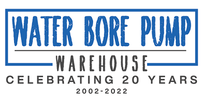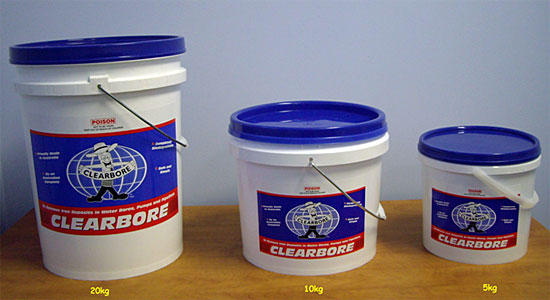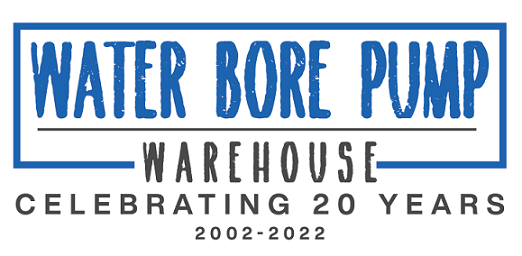Clearbore
|
CLEARBORE - The leading water bore and water pump cleaner.
Biofilm and encrustations in water bores, pumps and irrigation equipment caused by dissolved iron and Iron-related bacteria build up are simply dissolved away by Clearbore water bore pump cleaner. Clearbore is a safe, biodegradable and effective product for cleaning water bores and water pump systems. Clearbore is a biodegradable granular chemical product designed to remove the blockage of iron and hard encrustations that result from dissolved iron and iron-related bacteria build up. |
Water Bore and Pump Cleaning with Clearbore
One of the problems associated with groundwater extraction is loss of efficiency caused by the interaction and build up of dissolved iron and iron-related bacteria. Very often such blockages can lead to the abandonment and subsequent replacement of bores.
In extreme cases mechanical cleaning of the bore and pump system may be necessary to remove the encrustations and build up to ensure the effectiveness of the Clearbore treatment. Once the rejuvenation is complete, the bore's performance and water quality should be improved and can be regularly monitored. Regular Clearbore treatments should be carried out as determined by monitoring the output of the bore and pump system. As a guide we recommend using Clearbore every 12 months to keep the bore in an efficient and clean condition.
FREE ADVICE CALL: 1300 727 042
Email: [email protected]
Email: [email protected]
Water Bore Pump cleaner
Encrustation of Water Bores due to Iron Bacteria, Iron-related bacteria occur naturally in groundwater and are increasing rapidly throughout the world.
The interaction of dissolved iron and iron-related bacteria forms a solid mass, resulting in an encrustation. With age, bores and wells can develop a build-up of encrustation that causes a decrease in the bore yield and water quality. While most groundwater contains a certain concentration of dissolved iron, iron- related bacteria do not affect all bores. When the bacteria infect a bore with iron in the groundwater, their interaction results in growths which may either be suspended in solution or cause encrustation on the bore casing, screens, pumping equipment and in extreme cases in the gravel pack around the bore. This is termed "biofouling". The occurrence of biofouling in groundwater systems will result in:
There is some debate as to why certain bores suffer adversely from iron-related bacteria while others never become infected. The following list describes some ways in which bores may become infected:
Confirming the Presence of Iron-related bacteria.
One or more of the following symptoms indicates iron-related bacteria in a bore:
Once contamination by iron-related bacteria has been confirmed the following treatment is recommended:
The interaction of dissolved iron and iron-related bacteria forms a solid mass, resulting in an encrustation. With age, bores and wells can develop a build-up of encrustation that causes a decrease in the bore yield and water quality. While most groundwater contains a certain concentration of dissolved iron, iron- related bacteria do not affect all bores. When the bacteria infect a bore with iron in the groundwater, their interaction results in growths which may either be suspended in solution or cause encrustation on the bore casing, screens, pumping equipment and in extreme cases in the gravel pack around the bore. This is termed "biofouling". The occurrence of biofouling in groundwater systems will result in:
- Decreased flow through the screen pump and pipelines causing increased pumping costs;
- Plugging of the voids in the gravel pack surrounding the bore, leading to a decreased yield;
- Increased resistance to heat flow across the submersible pump motor causing operating problems and potential burn-out;
- Possible metal corrosion - the bacteria are thought to secrete an acidic substance;
- Decreased water quality (taste, colour, odour) due to a biofilm build-up as well as undesirable staining, usually red or brown;
- Plugging of drip irrigation systems due to the small nozzle orifice.
There is some debate as to why certain bores suffer adversely from iron-related bacteria while others never become infected. The following list describes some ways in which bores may become infected:
- The bacteria may exist in the groundwater before the bore is drilled;
- Bacteria may travel through the aquifer, infecting previously uninfected bores;
- Bacteria may be introduced to the bore via contaminated water taken from swamps or creeks used during the drilling process;
- Bacteria may be introduced by floods inundating unsealed bores;
- Changes in the chemistry of groundwater may provide an environment in which bacteria can become established.
Confirming the Presence of Iron-related bacteria.
One or more of the following symptoms indicates iron-related bacteria in a bore:
- Reduction in the capacity of the bore
- Deterioration of water quality - colour, odour, taste and staining
- Motor burn-out in the submersible pump
- Encrustation on the pump, column, bore casing, screens and reticulation system.
Once contamination by iron-related bacteria has been confirmed the following treatment is recommended:
- Determine the pH of the bore water and carry out a specific capacity test for comparison purposes after the treatment.
- Carry out the Clearbore treatment as per instructions.
- After the Clearbore treatment, pump out the bore until the pH is within 0.5 units of the pH value before treatment, or use the test solution supplied in the Clearbore pail.
- Conduct a specific capacity test on the bore. If the treatment has been successful, the drawdown should be less than previously measured.
Email from a recent customer-
Wrapped with the results of the 10kg I grabbed from you last week!
Have paid the invoice for 3 x 20kg of Clearbore.
Cheers - John Lienert
Sheoak Log, South Australia.
Wrapped with the results of the 10kg I grabbed from you last week!
Have paid the invoice for 3 x 20kg of Clearbore.
Cheers - John Lienert
Sheoak Log, South Australia.
the best in water bore pump cleaners
FREE ADVICE CALL: 1300 727 042
Email: [email protected]
Email: [email protected]





